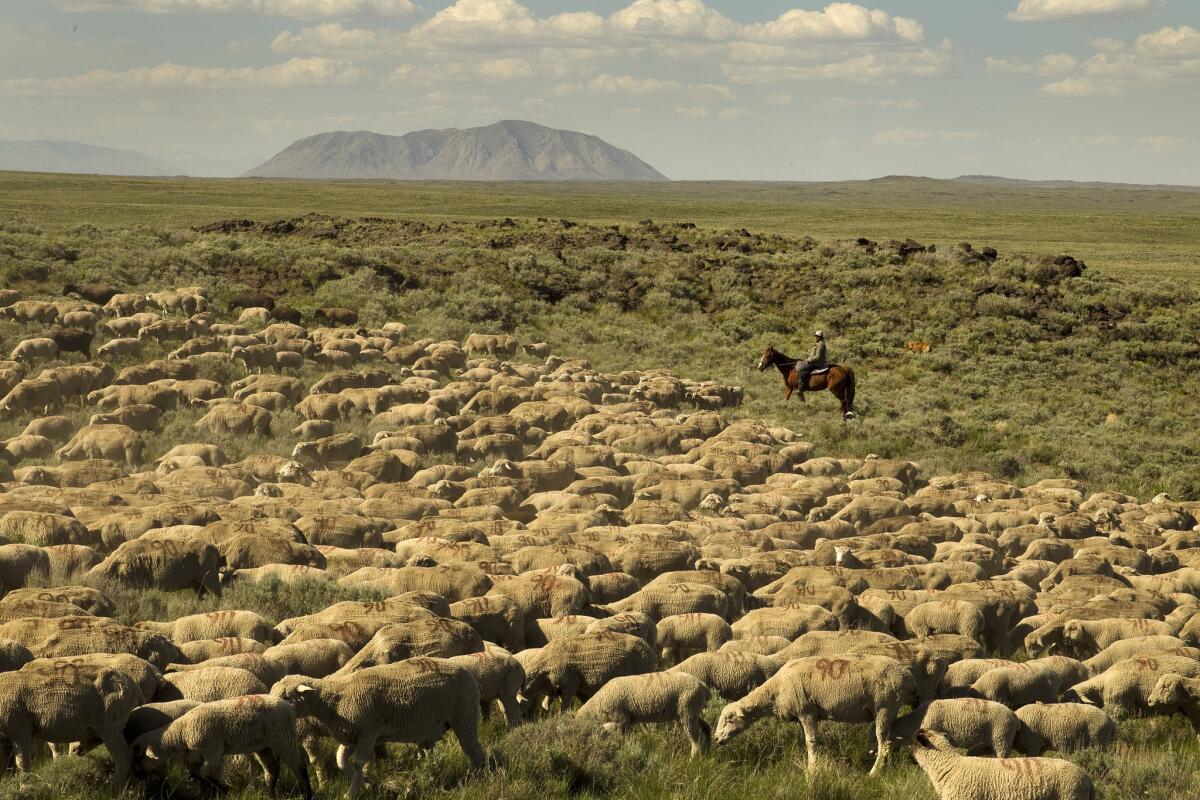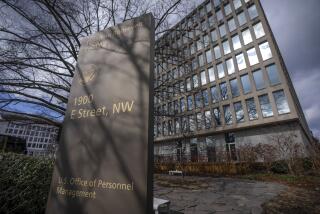Editorial: Trump’s plan to move BLM jobs west is a shallow pretext to gut the agency’s mission

Part of the problem with the constant flow of news out of the White House — from offensive tweets to potentially disastrous policies — is that acts that would have seemed outrageous in previous administrations slip past, hidden by the smoke of the Trumpster fire. The administration’s plan to effectively gut the Washington-based Bureau of Land Management is a case in point.
Some Trump administration policymakers, as well as some influential members of Congress, are philosophically opposed to the federal government owning public lands, much of which happens to be in the West, including about 80% of land within Nevada and 46% of California. All told, the federal government owns about 28% of the country’s acreage (most of it originally stolen from native tribes, but that’s another issue), and in some cases has done so for more than two centuries. The largest player in the management of non-marine federal lands is the Bureau of Land Management, which controls 248 million acres of public land and administers some 700 million acres of federal subsurface mineral rights.
And now the Trump administration — propelled by those who believe the federal government should cede much of its Western lands to state and local governments — wants to move nearly all of the BLM’s headquarters out of Washington and relocate the jobs mostly to Western states. It couches the reorganization as an effort to put more BLM workers closer to the lands they manage and reduce the agency’s costs in D.C. — office space in Grand Junction, Colo., where it wants to send 85 of the 222 affected positions, is much cheaper than in Washington.
On the surface, those seem like reasonable arguments. But public lands advocates argue persuasively that they are mere pretexts for undercutting an agency Trump advisers dislike. The vast majority of BLM jobs — 97%, according to the Public Lands Foundation — are already dispersed around the country, mostly in the West, and the bulk of the jobs to be moved out of Washington are top-level administrators and policy staffers who craft regulations and provide national oversight to regional offices. (The administration says about 60 mostly budget, legal and public affairs jobs will stay).
Scattering those jobs around the country will in all likelihood result in massive turnover among senior officials unwilling to upend their lives and careers in Washington. And there is evidence to support that: The Agriculture Department is shifting two agencies, the Economic Research Service and the National Institute of Food and Agriculture, from Washington to Kansas this fall. About 250 of the 395 employees — more than 60% — refused the transfers, a potentially crippling brain drain from the highly respected statistics department and the research agency.
Moving BLM will similarly rob that department of institutional memory and weaken its ability to work with Congress and other agencies — which, in fact, may be the point for the Machiavellians in Trump’s White House who want to cede public lands that we, as Americans, all own to states and local governments anxious to turn it over to developers and extractive industries. Interior Secretary David Bernhardt recently appointed William Perry Pendley, who through the conservative Mountain States Legal Foundation has pushed for the federal government to turn public lands over to states, as acting BLM director. The petroglyph on the wall couldn’t be clearer.
The decentralizing of BLM is part of Trump’s broader effort to slim the federal bureaucracy, which by itself is not an inherently bad goal. But in what has become standard operating procedure for this administration, the downsizing is being carried out in a ham-fisted manner. A good illustration is Trump’s edict that his administrators identify two regulations to repeal for every regulation they propose. Government by formula or dramatic flourish is neither efficient nor wise.
More broadly, this administration has proved time and again that its word is not to be trusted and that its arguments must be closely analyzed for Orwellian language intended to deceive. In Trump’s world, seemingly reasonable arguments for making bureaucratic changes have proved to be fig leaves for achieving policy ends that the administration could never get through Congress on their merits.
Congress must step up and fulfill its oversight role to ensure that bureaucratic sleight of hand doesn’t lead to dire consequences. Fundamentally, this is about who has the power to control the federal government, and so far Trump has asserted and Congress has abdicated. Fortunately, states, local governments and advocacy groups have held the line through legal challenges, but that’s no way to run a country.
More to Read
A cure for the common opinion
Get thought-provoking perspectives with our weekly newsletter.
You may occasionally receive promotional content from the Los Angeles Times.






